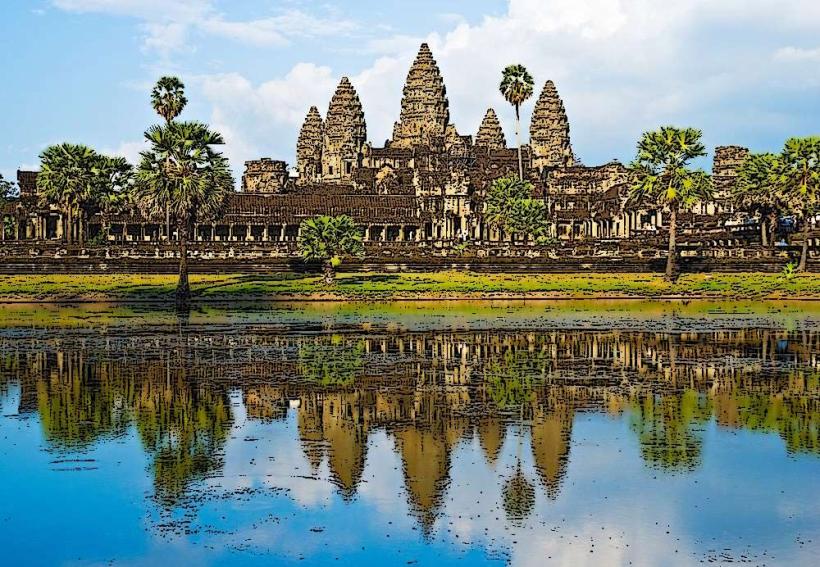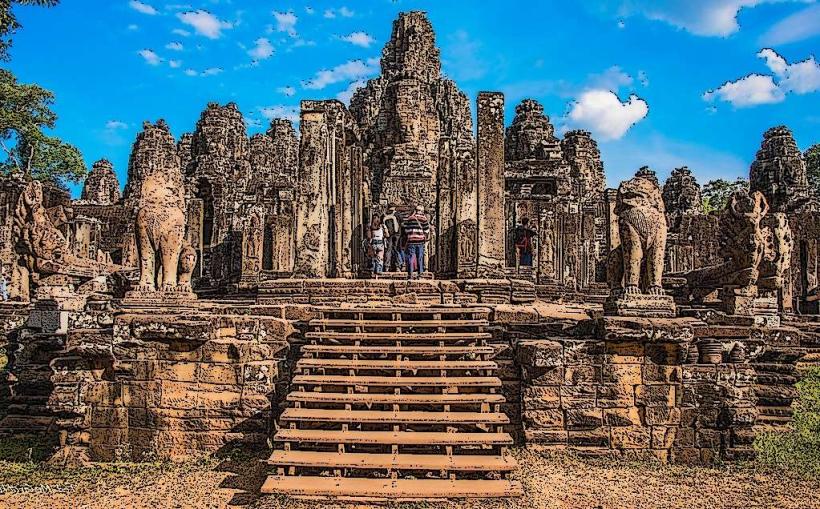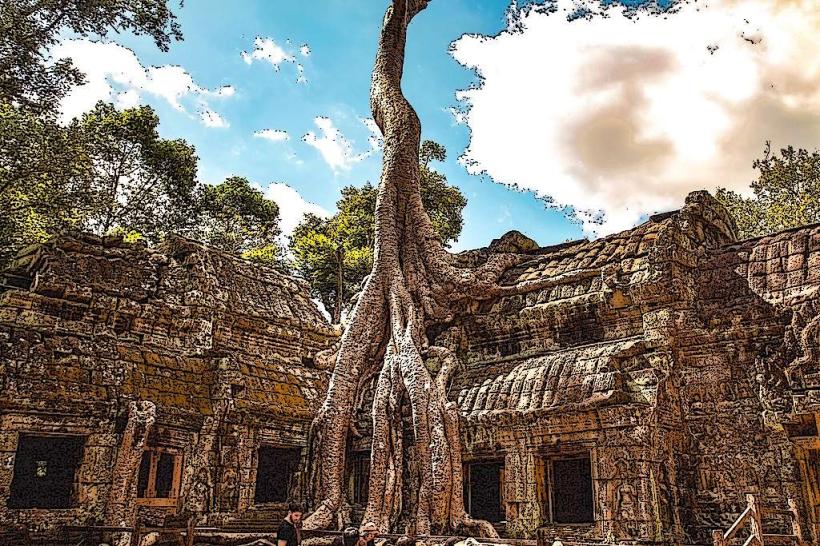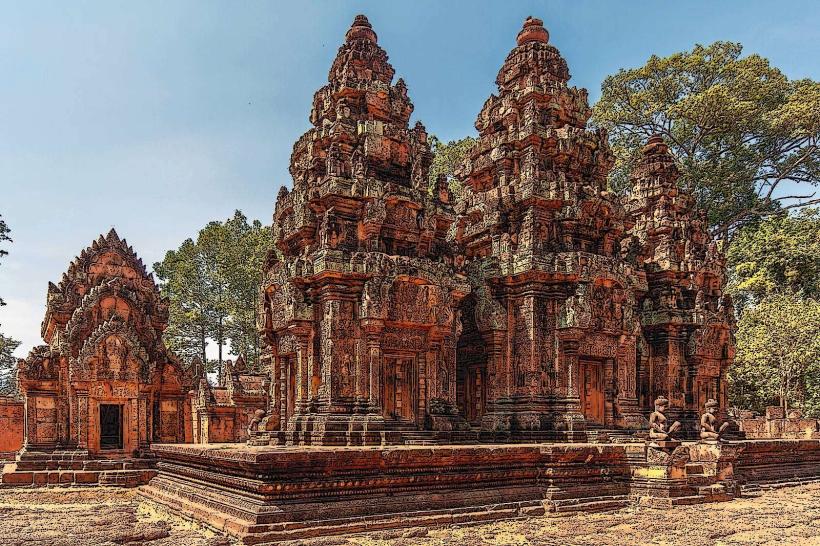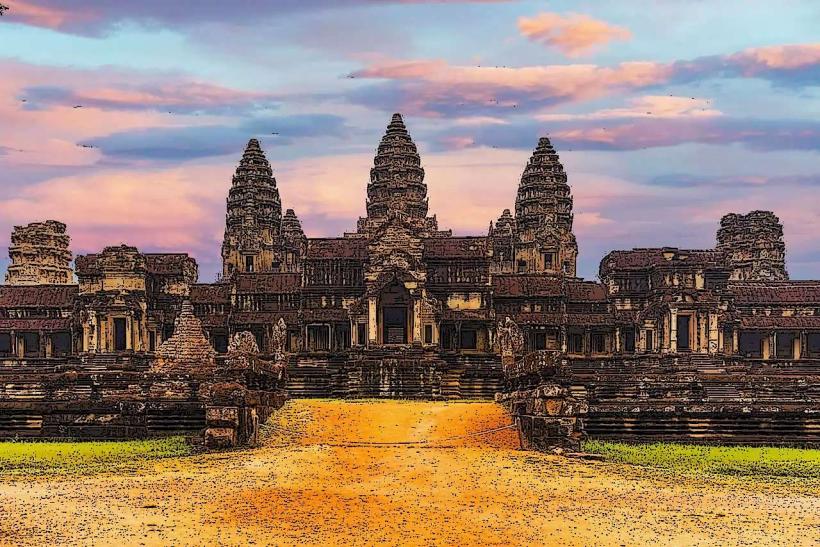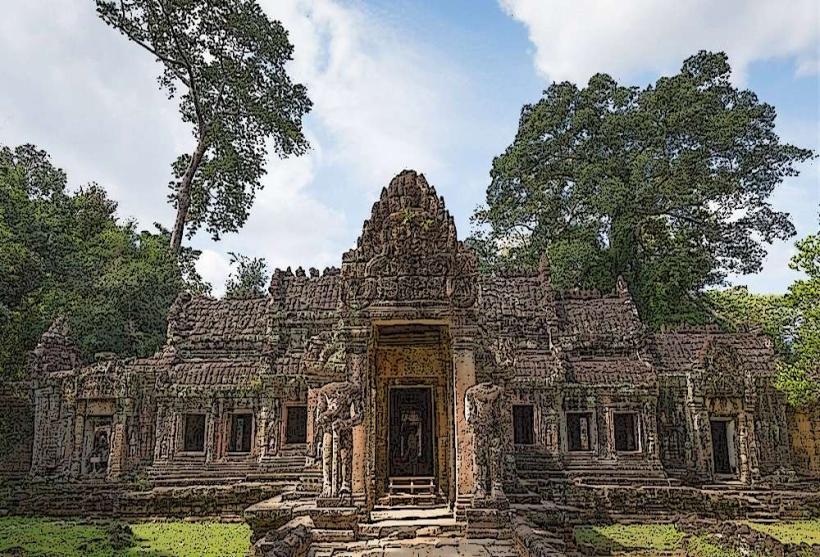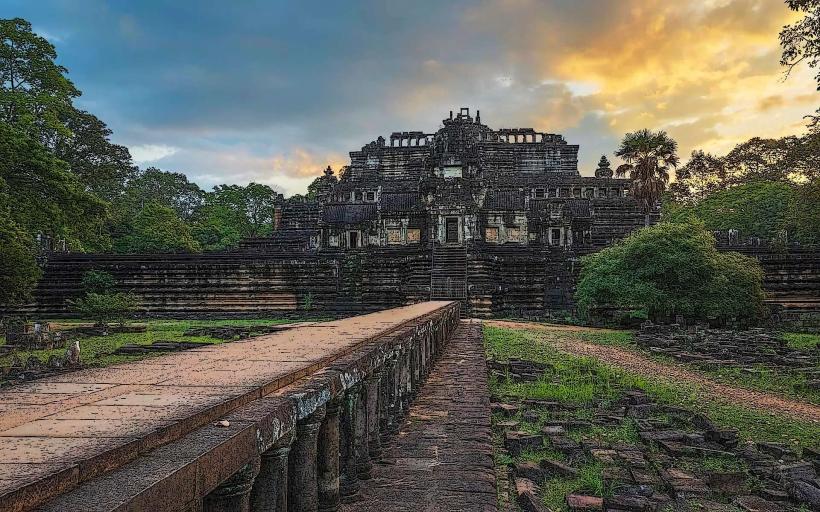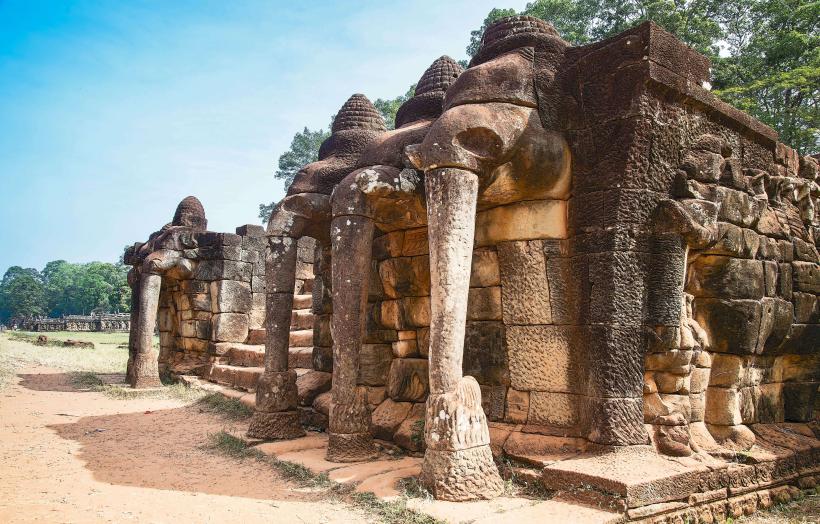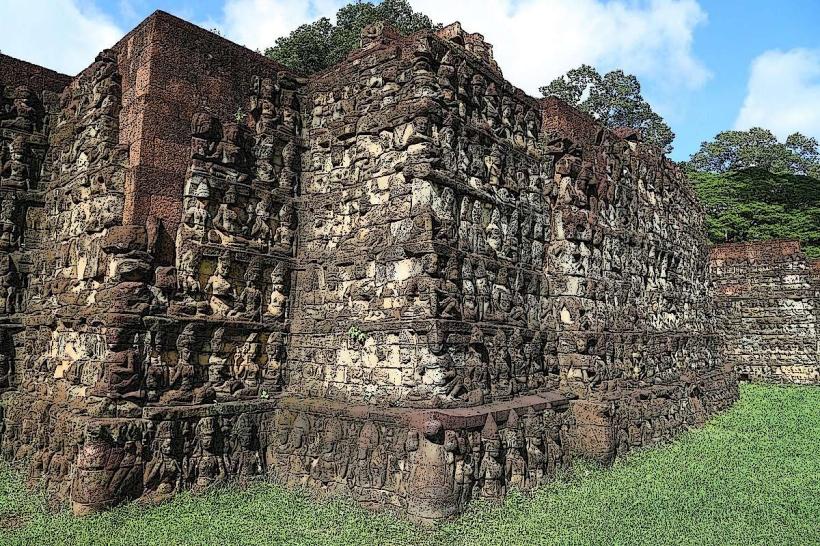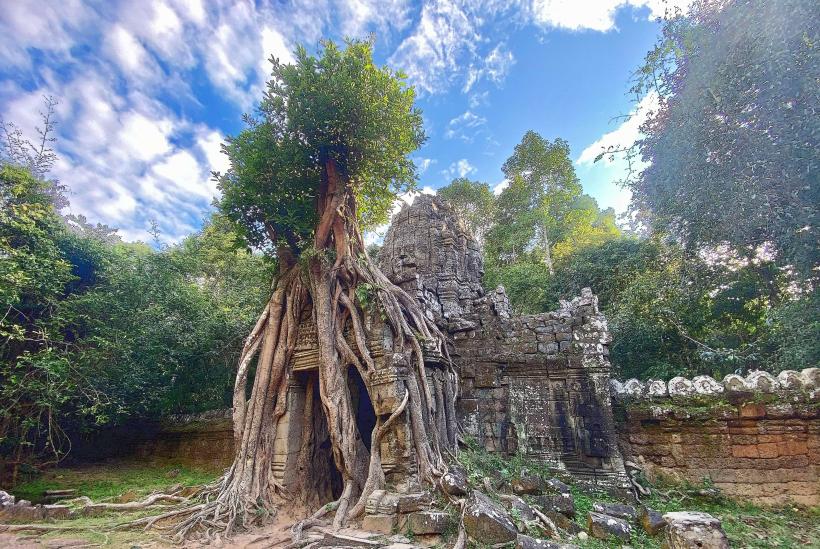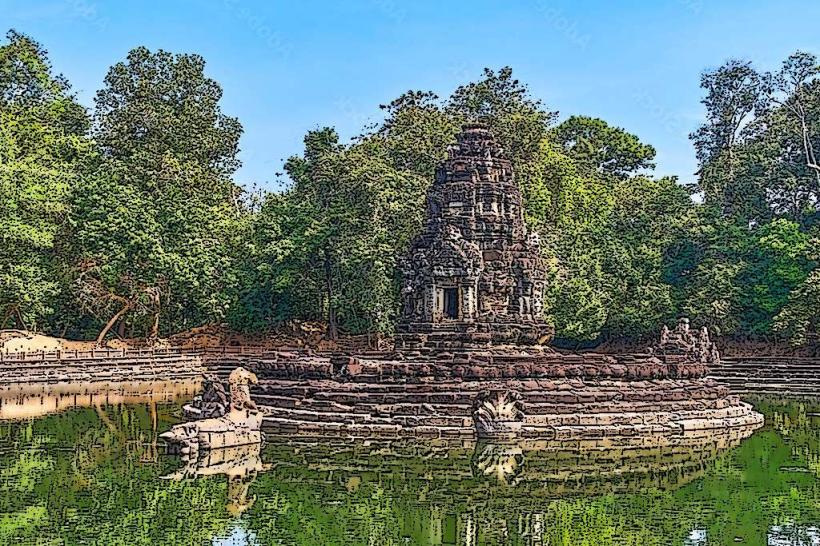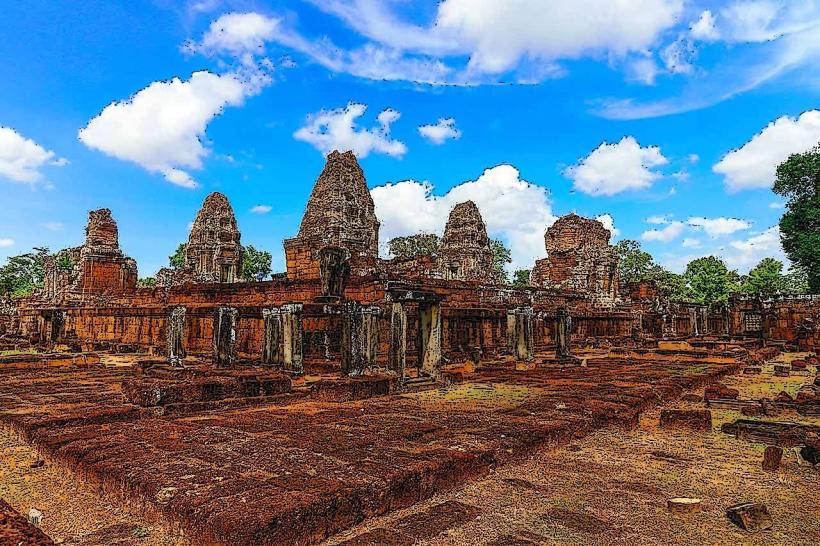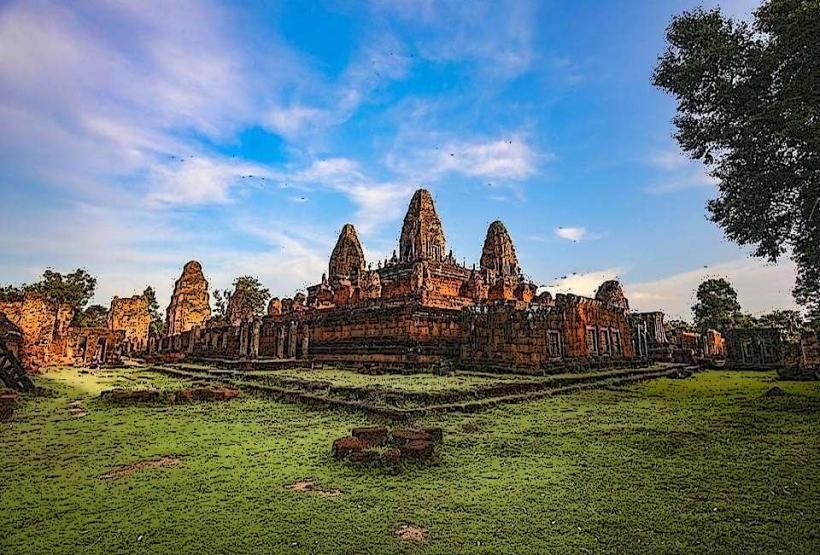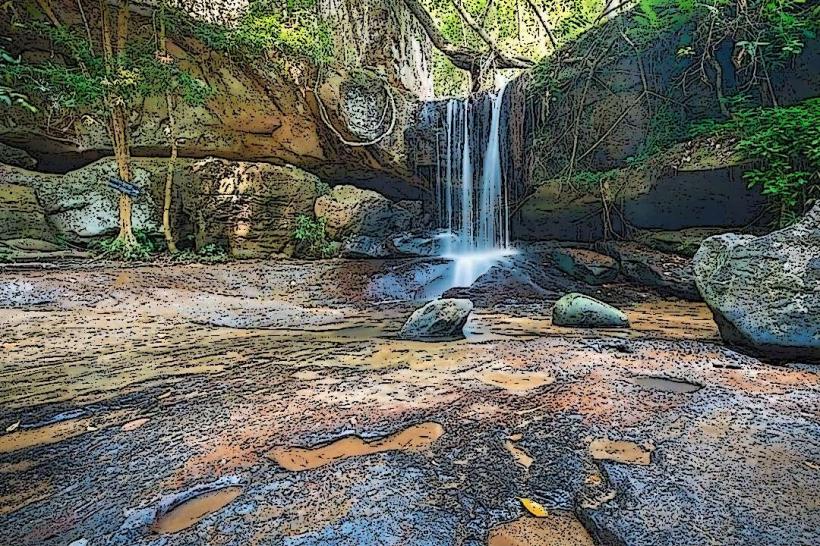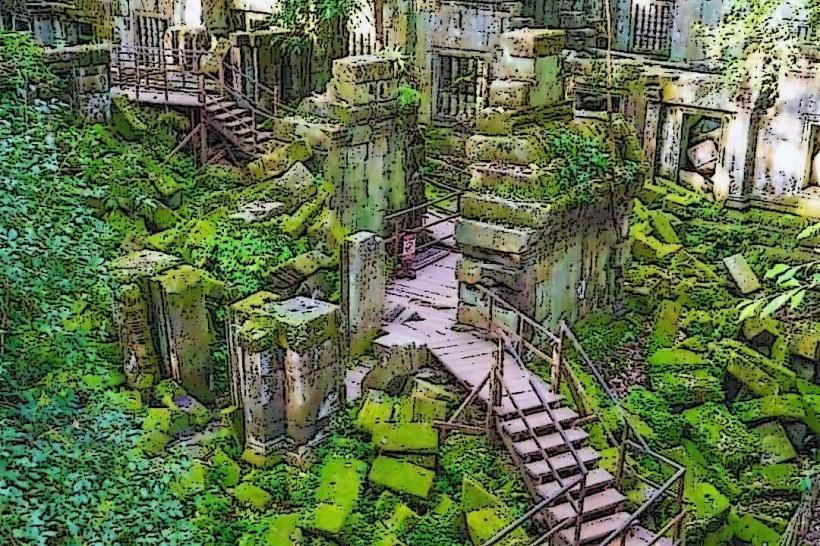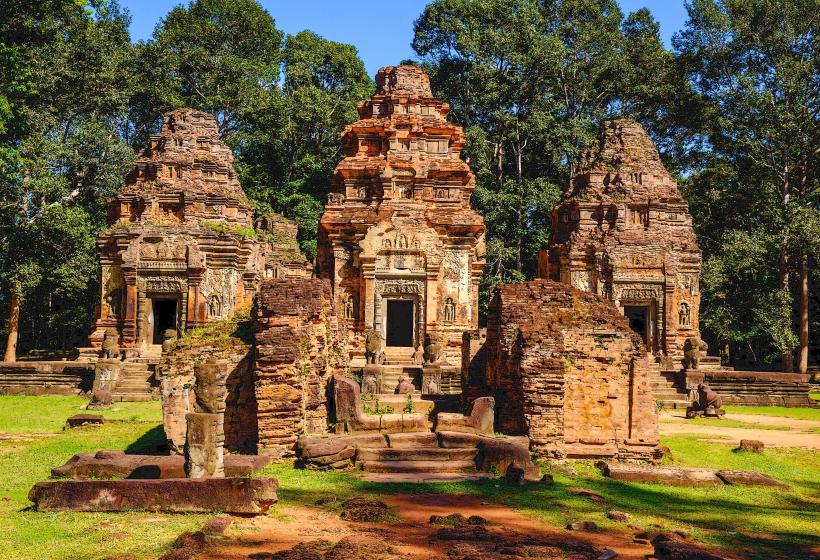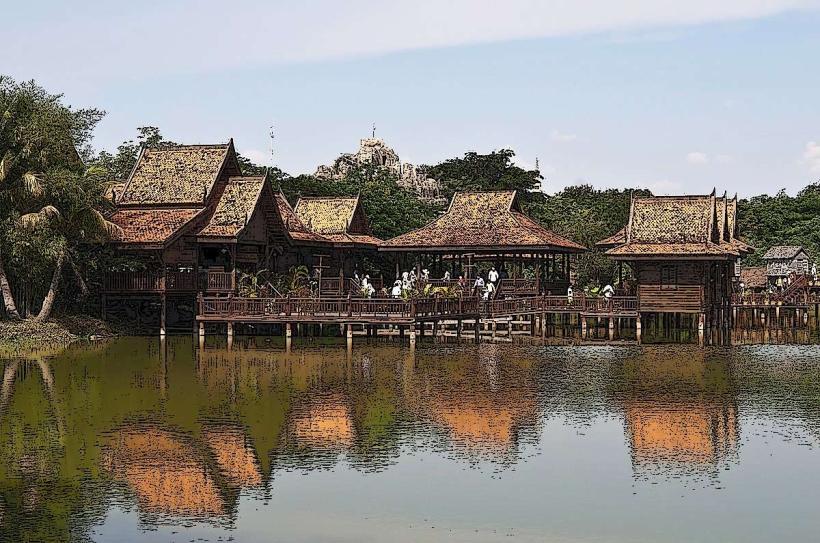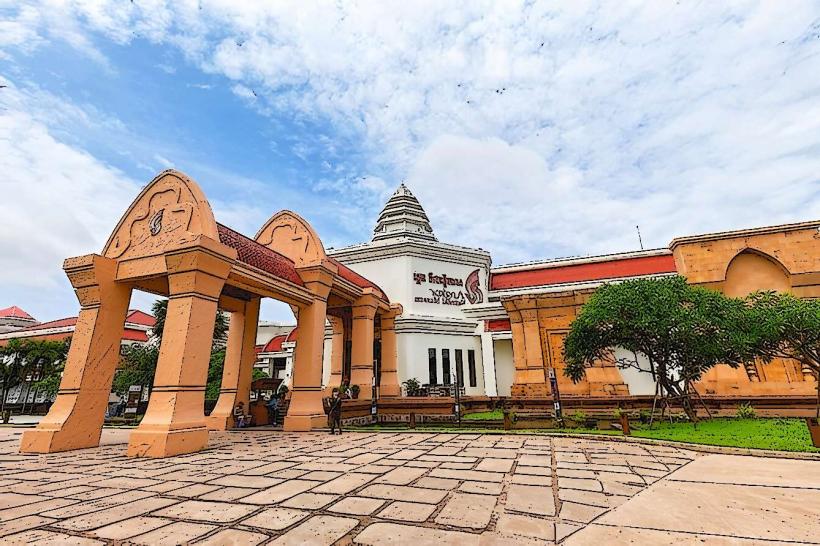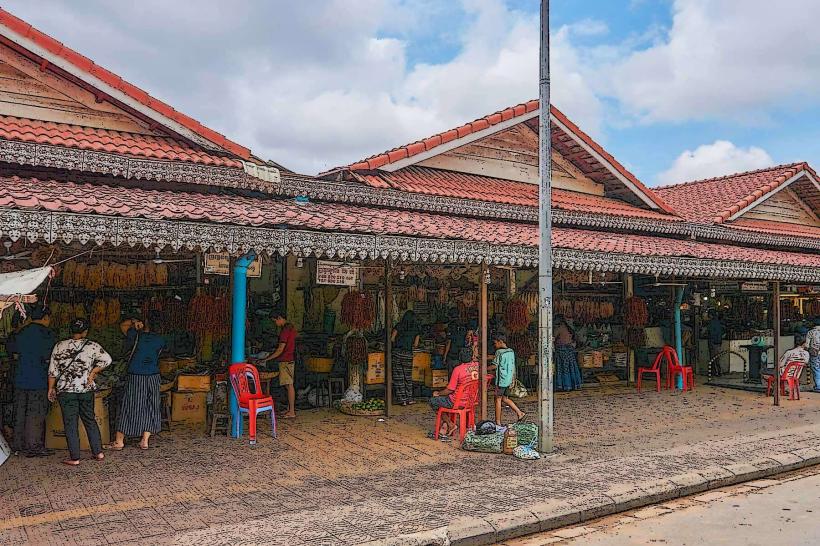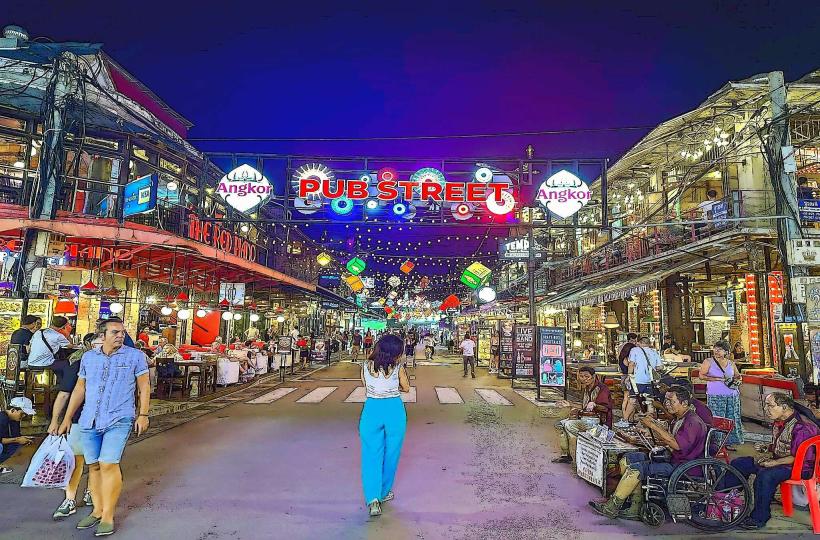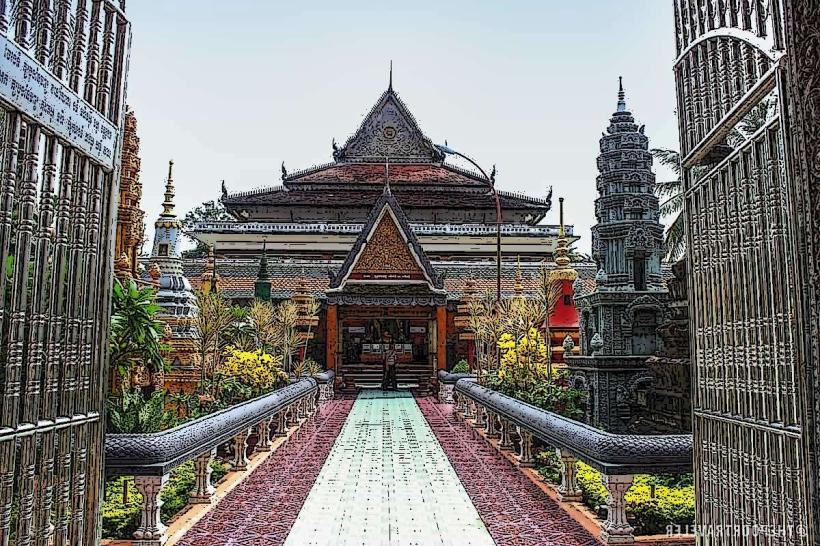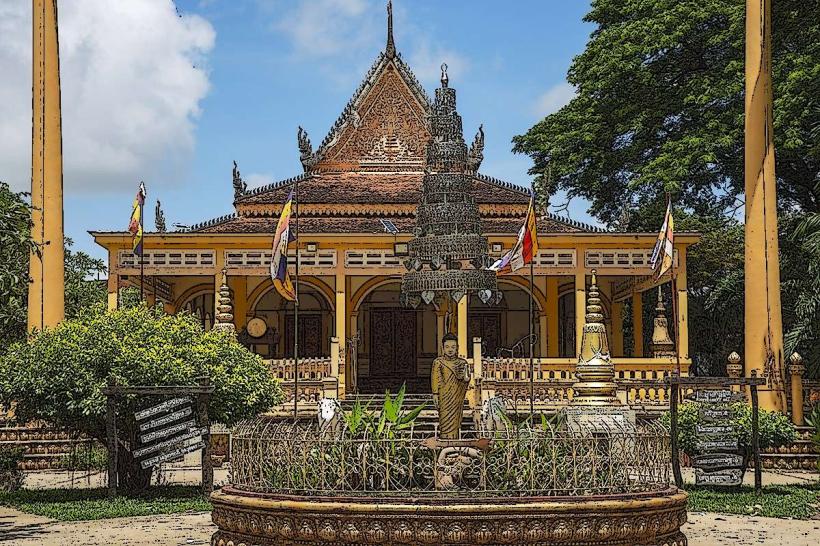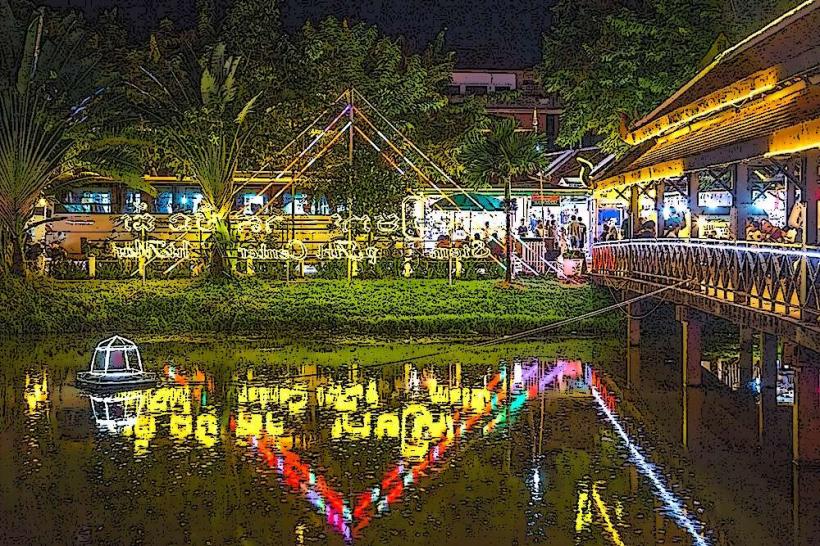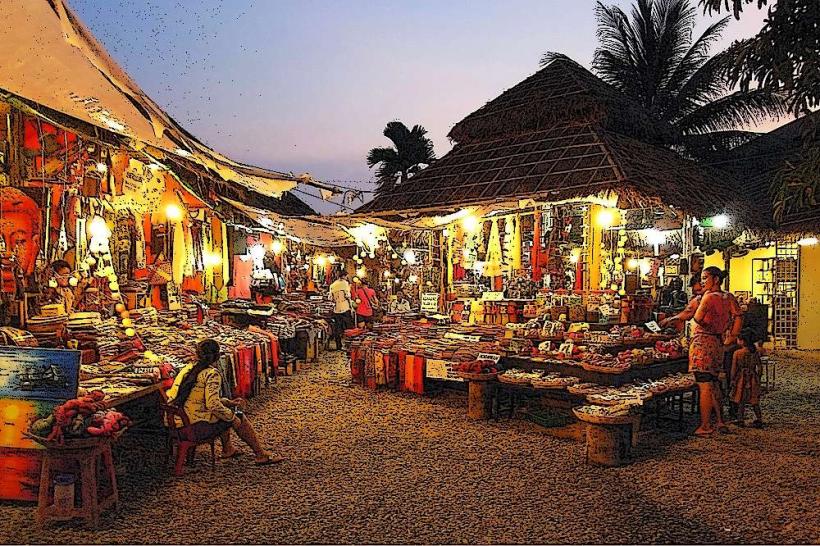Information
Landmark: Phnom BakhengCity: Siem Reap
Country: Cambodia
Continent: Asia
Phnom Bakheng, Siem Reap, Cambodia, Asia
Phnom Bakheng – The Sunset Temple of Angkor
Phnom Bakheng is one of the oldest and most significant temples in the Angkor Archaeological Park. Built in the late 9th century by King Yasovarman I (889–910 AD), it was originally dedicated to Shiva and served as the state temple of the first capital of Angkor, Yasodharapura.
Today, Phnom Bakheng is one of the most popular sunset viewpoints in Angkor, offering breathtaking panoramic views of Angkor Wat and the surrounding jungle.
History of Phnom Bakheng
Phnom Bakheng predates Angkor Wat by over two centuries and was constructed as the main temple of Yasodharapura, the first capital of the Khmer Empire.
- It was built on Phnom Bakheng Hill, a natural sandstone hill rising 65 meters (213 feet) above the surrounding plains.
- The temple symbolizes Mount Meru, the sacred cosmic mountain in Hindu and Buddhist cosmology.
- Phnom Bakheng was later abandoned when Angkor Thom was established in the late 12th century by Jayavarman VII.
Architectural Features of Phnom Bakheng
1. Temple-Mountain Design
Phnom Bakheng follows the "temple-mountain" architectural style, representing Mount Meru, the divine home of the gods.
- The temple has seven levels, including the base and central sanctuary, symbolizing the seven heavens of Hindu cosmology.
- There are five central towers on the top platform, symbolizing the five peaks of Mount Meru.
- The structure is made of laterite and sandstone, common materials used in Khmer temples.
2. 108 Small Shrines
Originally, Phnom Bakheng was surrounded by 108 smaller towers, a number sacred in Hindu and Buddhist traditions.
- Many of these towers have collapsed over time.
- The layout of the temple is said to represent a giant astronomical calendar.
3. The Panoramic View
One of Phnom Bakheng’s biggest attractions is its breathtaking view of Angkor Wat, especially at sunrise and sunset.
- From the top, visitors can see Angkor Wat rising from the jungle, making it a popular photography spot.
- The western-facing view makes it a prime location for sunset watching, attracting large crowds in the evening.
Religious and Cultural Significance
- Phnom Bakheng was dedicated to the Hindu god Shiva, reflecting the early Hindu influence on Khmer architecture.
- The temple was later modified and used by Buddhist monks, evident from the Buddhist carvings and statues found there today.
- The temple's alignment and layout reflect astronomical and religious symbolism, reinforcing its sacred significance.
Visiting Phnom Bakheng
1. Best Time to Visit
- Sunrise (before 6 AM): Offers a peaceful atmosphere with fewer crowds.
- Sunset (4:30–6 PM): The most popular time, but expect large crowds and limited space at the top.
2. Getting There
- Located 1.5 km northwest of Angkor Wat.
- Accessible by walking, tuk-tuk, or bicycle from Angkor Wat.
- The temple requires a steep 20-minute climb to reach the summit.
3. What to Expect
- A moderate uphill hike (wear comfortable shoes).
- Crowds at sunset, so arriving early is recommended.
- A stunning 360-degree view of Angkor Wat and the surrounding landscape.
Conclusion
Phnom Bakheng is a historically and spiritually significant temple that offers one of the best panoramic views in Angkor. As the first major temple of the Khmer Empire, it represents the early architectural brilliance of the civilization. While it is most famous for sunset viewing, visiting at sunrise or during quieter hours allows for a more peaceful and immersive experience.

